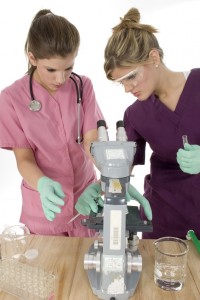Professor Tony Gershlick presented the CVLPRIT study’s findings at the European Society of Cardiology, the biggest cardiology conference in the world. The study, led by Professor Gershlick and Senior Co-Investigator, Dr Gerry McCann, revealed that by treating heart attack patients who have two or three narrowed arteries with additional stents during the same operation, results in a reduction of major complications within 12 months by more than 50%.
The ACC had previously issued a list of “do-not-do” procedures in April 2012 as part of the Choosing Wisely campaign issued by the American Board of Internal Medicine. In an unusual move, following Prof. Gershlick’s presentation, this is the first time that the list has been revised.
“Science is not static but rather constantly evolving,” ACC President Dr Patrick T O’Gara said in a statement. “As such, one of the ACC’s primary roles is to stay abreast of this evolution and provide cardiovascular professionals and patients with the most up-to-date information on which to base decisions about the most appropriate and necessary treatment. The newest findings regarding coronary revascularization are great examples of science on the move, and we are responding accordingly.”
Coronary Revascularisation is the restoration of perfusion (the process of delivering blood to tissue) to a body part or organ that has suffered ischemia (a restriction in the blood supply which causes a shortage of oxygen and glucose and leads to the tissue dying).
The CvLPRIT trial took place at the Glenfield Hospital and was funded by the British Heart Foundation and the National Institute for Health Research.
Prof. Gershlick said “30-40% of heart attack patients also have a narrowing in another artery which at that point in time, isn’t causing a heart attack. So, it has always been difficult to know whether to treat the other artery at the same time as treating the blocked artery. Previous data has always been conflicting but there was some that suggested there may be benefits to treating everything all at once, so we designed a study specifically to look into it.” The ACC also considered a previous UK study, the PRAMI trial which also indicated benefit from treating everything all at once.


